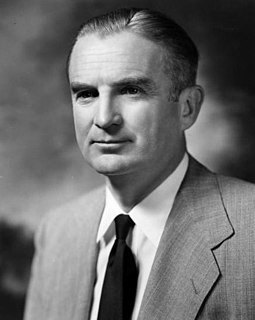A Quote by Michael Hastings
And there's this talk that we're asking soldiers to make the greatest sacrifice, but the reality is that civilians bear the burden of war more than the combatants. You're much more likely to get accidentally blown up or killed by a death squad than you are to die in a firefight.
Related Quotes
If I have to reduce all of the laws of war into a single sentence, it is this. You divide the world into two, combatants and noncombatants. You can attack deliberately combatants, but not deliberately noncombatants. Israel acts that way. It attacks combatants and accidentally kills noncombatants. But in the case of the terrorists, it's the exact opposite. They deliberately attack combatants - noncombatants, civilians, deliberately.
I want a military funeral when I die?the bugler, the flag on the casket, the ceremonial firing squad, the hallowed ground.... It will be a way of achieving what I've always wanted more than anything?something I could have had, if only I'd managed to get myself killed in the war.... The unqualified approval of my community.
The U.S. has more guns per capita and supplies more guns to the world than any other country. What would be a fistfight without guns turns into dead bodies with them. Families with guns in the house are more likely to shoot themselves accidentally than to shoot any intruder. Women abused by their partners have a five-fold increased risk of being killed when their partner owns a gun. Every three hours, at least one child is wounded or killed by gunfire.
A lot of my books deal with very controversial issues that most people often don't want to talk about, issues that, in my country, are more likely to get put under the carpet than get discussed. And when you talk about moral conundrums, about shades of gray, what you're doing is asking the people who want the world to be black and white to realize instead that maybe it's all right if it isn't. I know you'll learn something picking up my books, but my goal as a writer is not to teach you but to make you ask more questions.
Peace is not just a colored ribbon. It's more than a wristband or a t-shirt. It's not just a donation or a 5 K race. It's not just a folk song, or a white dove. And peace is certainly more than a celebrity endorsement. Peace is a fulltime job. It's protecting civilians, overseeing elections, and disarming ex-combatants. The UN has over 100,000 Peacekeepers on the ground, in places others can't or won't go, doing things others can't or won't do. Peace, like war, must be waged.
More girls were killed in the last 50 years, precisely because they were girls, than men killed in all the wars in the 20th century. More girls are killed in this routine gendercide in any one decade than people were slaughtered in all the genocides of the 20th century. The equivalent of 5 jumbo jets worth of women die in labor each day... life time risk of maternal death is 1,000x higher in a poor country than in the west. That should be an international scandal.
If current trends continue, the typical U.S. worker will be considerably more productive several decades from now. Thus, one might argue that letting future generations bear the burden of population aging is appropriate, as they will likely be richer than we are even taking that burden into account.
































